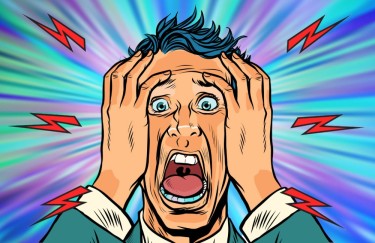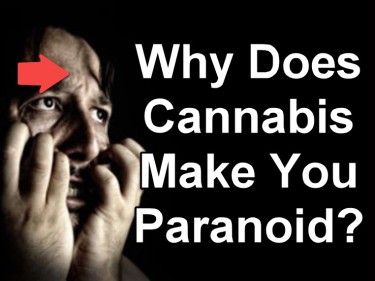Can Magic Mushrooms Make You Paranoid Like Weed Sometimes Does?

As more and more studies explore the potential therapeutic benefits of psilocybin, the main hallucinogenic ingredient in magic mushrooms, encouraging results are being found for several ailments that do not respond well to traditional therapies. In spite of this, many people find it frightening to venture into the world of psychedelics.
Much like the old “reefer madness” hoax surrounding cannabis, psilocybin and other psychedelics are rapidly losing their stigma in society. There is less evidence to support the claim that psychedelic experiences always result in psychosis and other mental health problems.
Studies show that emergency room visits related to psilocybin use are exceedingly rare, with most negative effects stemming from factors like mindset, setting, and substance combinations, often resolving within a day.
While acknowledging the inherent risks in any medical intervention, recent research has focused on examining adverse effects associated with psilocybin therapy for anxiety and depression. A meta-analysis published in JAMA Psychiatry by researchers from the University of Georgia, Larkin University, and Palm Beach Atlantic University scrutinized double-blind clinical trials spanning from 1966 to 2023.
The findings identify anticipated adverse effects of psilocybin therapy for depression and anxiety, but notably, paranoia and transient thought disorders were reported infrequently compared to other symptoms.
Reflecting on Past Research to Shape the Future
The authors of a recent study on psilocybin treatment for depression and anxiety disorders commence by highlighting the existing body of research on the subject. They note that while previous clinical investigations have primarily focused on efficacy, there has been a notable absence of emphasis on the safety profile of psilocybin.
In order to analyze the side effects associated with therapeutic dosages of psilocybin in the treatment of depression and anxiety, researchers reviewed a large number of relevant publications. These studies included randomized clinical trials that compared psilocybin to placebo groups or other comparators. Furthermore, based on previous clinical data, the researchers divided the delivered dosages into three categories: low (1-3 mg), moderate (10-20 mg), and high (20-30 mg).
The analysis involved six distinct studies involving a collective total of 528 participants. Notably, participants typically experienced adverse effects either immediately or within 24 hours following psilocybin administration. Despite common misconceptions surrounding psilocybin and similar psychedelics, the study authors found no evidence linking psilocybin to the onset of paranoia or transient thought disorders, which are characterized by sudden psychotic symptoms.
Among the adverse effects observed across all six studies, headache (with an incidence ranging from 2% to 66%) and nausea (ranging from 4% to 48%) were consistently reported. Anxiety was documented in three of the studies, with incidence rates ranging from 4% to 26%. The authors also highlight that all adverse effects, except for elevated blood pressure, were estimated to occur in less than 50% of participants.
Psilocybin Induces Manageable Short-Term Side Effects with Prompt Resolution
In their discussion, researchers emphasize the necessity of summarizing the acute adverse effects of psilocybin in treating depression and anxiety for healthcare professionals. They highlight that understanding these effects is crucial for effective patient counseling. The study reveals a statistically significant occurrence of headache, nausea, anxiety, dizziness, and elevated blood pressure, which aligns with the expected side effects of serotonergic antidepressants due to psilocybin’s mechanism of action.
The research documents three instances of paranoia and transient thought disorder in high-dose psilocybin across 128 patients, with therapist or facilitator assistance likely mitigating potential complications. While the incidence of paranoia and transient thought disorder appears low, the study underscores the importance of exploring these adverse effects further.
Conclusively, the study finds that therapeutic doses of psilocybin generally result in tolerable acute adverse effects that typically subside within 24 to 48 hours. However, less common adverse effects like paranoia and prolonged visual perceptual effects merit attention.
The authors advocate for larger trials to comprehensively assess adverse effects, particularly in populations with concurrent health conditions. They also call for research focusing on medication efficacy, alternative treatments, and the role of licensed therapists in managing adverse effects.
They recommend that guidelines for monitoring acute adverse effects encompass headache, nausea, anxiety, dizziness, paranoia, blood pressure and heart rate fluctuations, visual perceptual changes, physical discomfort, and mood alterations at a minimum.
Shifting Perspectives on Psychedelics
The research of the therapeutic potential of psychedelics, notably psilocybin found in magic mushrooms, reveals that cultural attitudes are progressively changing. Psychedelics, formerly stigmatized and feared, are increasingly receiving recognized for their promise ability to address mental health issues that are resistant to traditional therapy. This paradigm change represents a break from old narratives that presented psychedelics as inherently hazardous and without therapeutic potential.
The changing way that society views psychedelics is reflected in the expanding body of research that examines their potential therapeutic uses with ever-greater rigor and detail. The potential of medicines like psilocybin to facilitate remarkable healing experiences is becoming increasingly recognized as scientific research reveals the processes underlying these effects. This new insight emphasizes the significance of taking a balanced approach to psychedelics, acknowledging both their therapeutic potential and concomitant hazards.
Within this evolving landscape, the role of healthcare professionals and researchers is pivotal in shaping informed discourse and evidence-based practices surrounding psychedelic therapy. By fostering open dialogue and disseminating accurate information, stakeholders can dispel myths and misconceptions while promoting responsible and ethical use of psychedelics in clinical settings. Furthermore, by advocating for robust regulatory frameworks and comprehensive training programs, professionals can ensure the safe and effective integration of psychedelics into mental health care.
It is critical to foster a climate of respect, empathy, and understanding surrounding the use of psychedelics as society works to move past the stigma. Through the adoption of a balanced viewpoint that recognizes the possible advantages as well as disadvantages of psychedelics, we may effectively utilize their therapeutic potential while preserving personal health. In the end, the movement toward psychedelic acceptance and de-stigmatization is a big step forward in the search for novel and all-encompassing methods of providing mental health care.
Bottom Line
As research continues to uncover the therapeutic potential of psychedelics, particularly psilocybin, societal attitudes are shifting away from stigmatization toward recognition of their promise in addressing mental health challenges. This evolving perspective, mirrored by an expanding body of rigorous research, emphasizes the importance of informed discourse, responsible use, and comprehensive regulatory frameworks to ensure the safe and effective integration of psychedelics into mental health care. By fostering understanding and respect for the potential benefits and risks of psychedelics, society can move toward a more holistic approach to mental health treatment.




